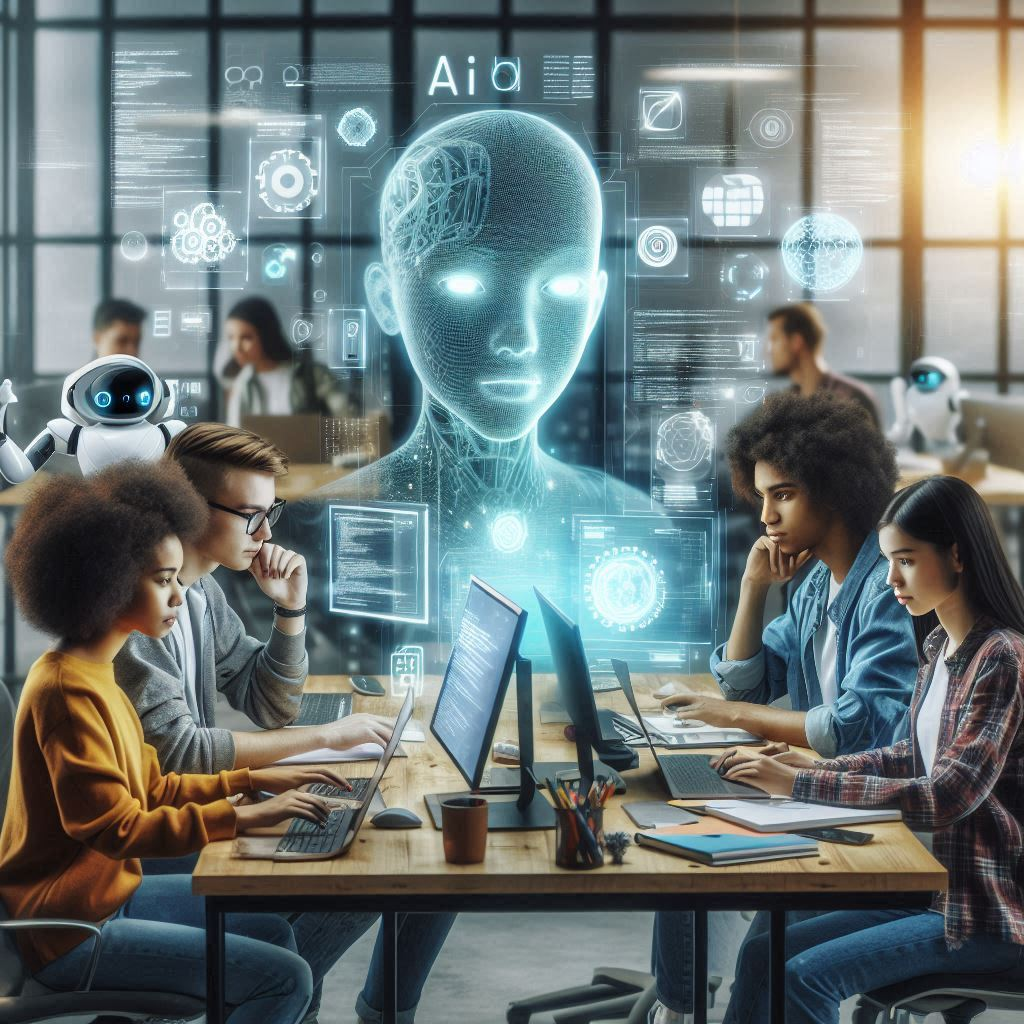About the Author
Sarah Jones is a seasoned HR professional with over 15 years of experience in talent development and recruitment. She has a keen interest in the intersection of AI and the future of work, and is passionate about building effective learning and development programs.
AI in the Workplace: A Game Changer?
Artificial intelligence (AI) is rapidly transforming the business landscape, and its impact extends beyond automation. AI-powered training programs are emerging as a potential game-changer in onboarding and development for junior staff. However, this innovation raises questions for business leaders, talent development professionals, and HR teams.
The Allure of AI-powered Training for Junior Staff
There’s no denying the appeal. AI promises an efficient and scalable approach to training. Programs can deliver consistent, standardized learning experiences to a large number of new hires simultaneously. Additionally, AI can analyze learner data to identify knowledge gaps and personalize training further. This data-driven approach can significantly improve training effectiveness.
Research Reveals Concerns: What Makes Business Leaders Hesitant?
Despite the hype, recent research by the [Credible Research Institute] led by Dr. Mark X, a leading expert in AI and learning technologies, reveals concerns among business leaders regarding AI-powered training for junior staff. The research identifies key anxieties:
- Limited human interaction: Mentorship and personalized feedback are crucial for new hires. Leaders worry that AI-powered training may lack the human touch necessary for effective development.
- Bias in training data: AI algorithms can perpetuate unconscious bias present in training data. This could lead to unfair hiring practices and hinder inclusivity within the workplace.
- Soft skills development: AI may struggle to teach essential soft skills such as communication, collaboration, and critical thinking. These skills are vital for success in any professional setting.

Beyond the Hype: Addressing the Risks of AI Training
Dr. Mark X’s research underscores the importance of a strategic approach to AI-powered training. Simply replacing human trainers with AI isn’t the answer.
Finding the Right Fit: When Does AI Make Sense for Junior Staff Training?
AI can be a valuable tool, but it’s best utilized for specific tasks within a broader learning and development program. Here’s where AI excels:
- Delivering foundational knowledge: AI can effectively deliver standardized training on company policies, basic procedures, and industry fundamentals.
- Self-paced learning: AI-powered modules allow new hires to learn at their own pace and revisit topics as needed.
Striking a Balance: Human Expertise and the Future of Learning
Human expertise remains critical for effective junior staff training. Human trainers can facilitate real-time feedback, answer questions, and provide essential soft skills development opportunities through mentoring and team-based activities.
Conclusion: Embracing AI with a Strategic Eye
Dr. Mark X’s research provides valuable insights for business leaders and HR professionals. AI can be a powerful tool for junior staff training, but it must be implemented strategically to address potential risks and maximize benefits. The key lies in striking a balance between AI’s efficiency and the irreplaceable value of human interaction.










